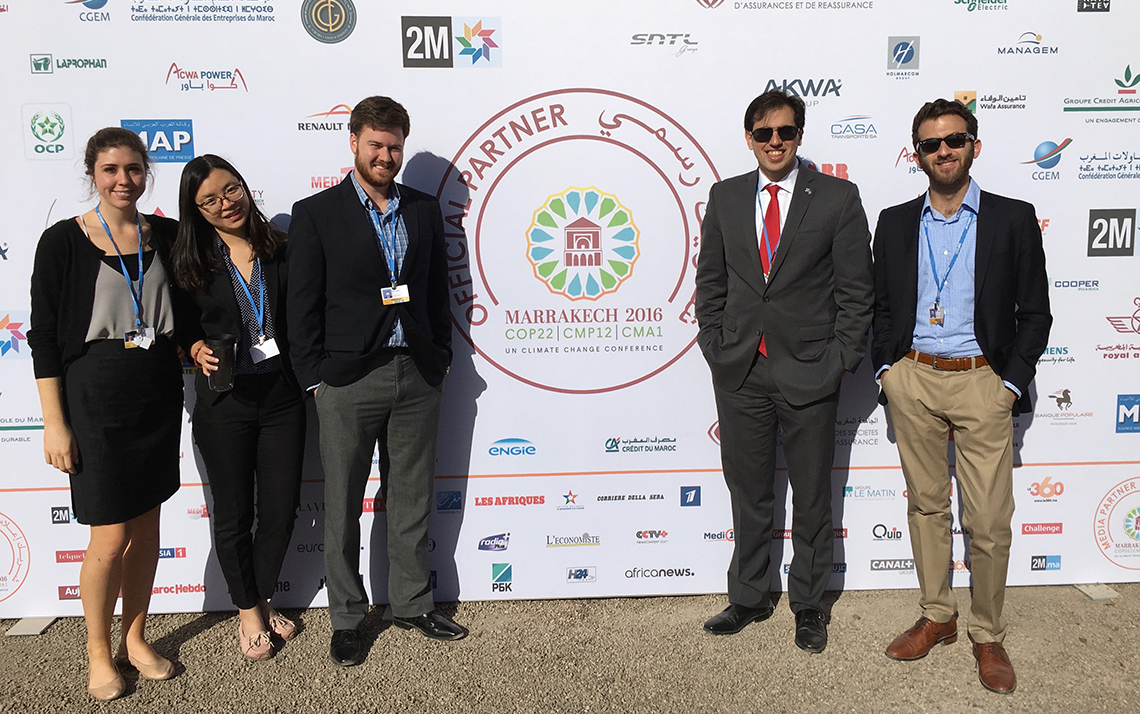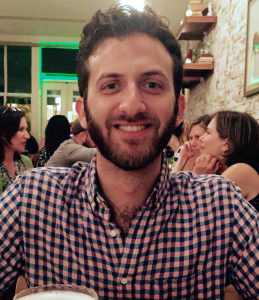Bass Connections Course Puts Students at the Heart of Climate Change Negotiations

The U.N. Climate Change Negotiations Practicum is a Bass Connections course that explores international climate change negotiations and climate policy under the United Nations Framework Convention on Climate Change (UNFCCC).
It’s a unique opportunity for graduate and undergraduate students to gain a comprehensive understanding of the issues at the heart of global climate change — from adaptation and mitigation to the political dynamics of the UNFCCC negotiations process.
Students from across programs and departments engage in independent coursework, classroom discussions and guest lectures in preparation for the annual U.N. climate change negotiations. In the past seven years, course participants attended the Conference of the Parties (COP) negotiations in Marrakech, Paris, Lima, Warsaw, Doha, Durban and Cancún. Student teams partnered with countries, such as Palau, Bangladesh, Mexico and the Philippines, and with NGOs, such as Islands First, International Union for the Conservation of Nature and the International Institute for Environment and Development.
Apply for the Fall 2017 Course by August 16
Participation in the Fall 2017 U.N. Practicum is open to graduate and upper-level undergraduate students at Duke. Faculty sponsors are Jonathan Wiener (Duke Law) and Billy Pizer (Sanford School of Public Policy); course leaders are graduate students Adam Fischer and Ryan Callihan.
Students will explore the intricacies of climate diplomacy, including the history of global negotiations, key issues, current status and future directions. Students will likely have the opportunity to travel to Bonn, Germany, for COP23.
Applications are due by Wednesday, August 16 at 5:00 p.m. Students will be notified of their selection by August 21. The course will meet on Mondays from 1:00 to 3:00 p.m.
Reflections on COP22 in Marrakech
Last year’s U.N. Practicum sent a delegation to Marrakesh, Morocco, for COP22. In addition to attending the broader negotiations, students supported their client organizations by crafting policy memos, preparing research and assisting with side events. Clients included the Environmental Defense Fund, Climate Analytics, International Union for Conservation of Nature, World Resources Institute, Greenpeace China, Climate Registry, National Resources Defense Council, Resources for the Future and ConexionCOP.

For Fischer, the conference raised many questions. “Did Marrakech fall short of its intention to be the ‘COP of action’?,” he wondered. “My experience taught me that it’s perhaps misguided to label any given COP a success or failure. The annual meetings have truly astounding convening power, as they attract the best and brightest minds focused on climate action from nearly 200 countries. No other gathering can quite match the momentum built at events like the COP. And as I walked through the event halls and different countries’ pavilions, I couldn’t help but wonder whether the initiatives, funding, and partnerships announced in Marrakech would exist in the absence of the COP. The annual COP plays diverse and crucial roles beyond the negotiations process itself, and witnessing this firsthand made me hopeful for the future of climate action.”
Learn More
- Review all Bass Connections one-semester courses.
- Check out a new Bass Connections year-long project team, Turning the Mid-Century Decarbonization Strategy into Concrete Policy for U.S. Forests and Agriculture, now accepting applications.
- Explore Bass Connections in Energy.
Photos: Students at COP22; Adam Fischer